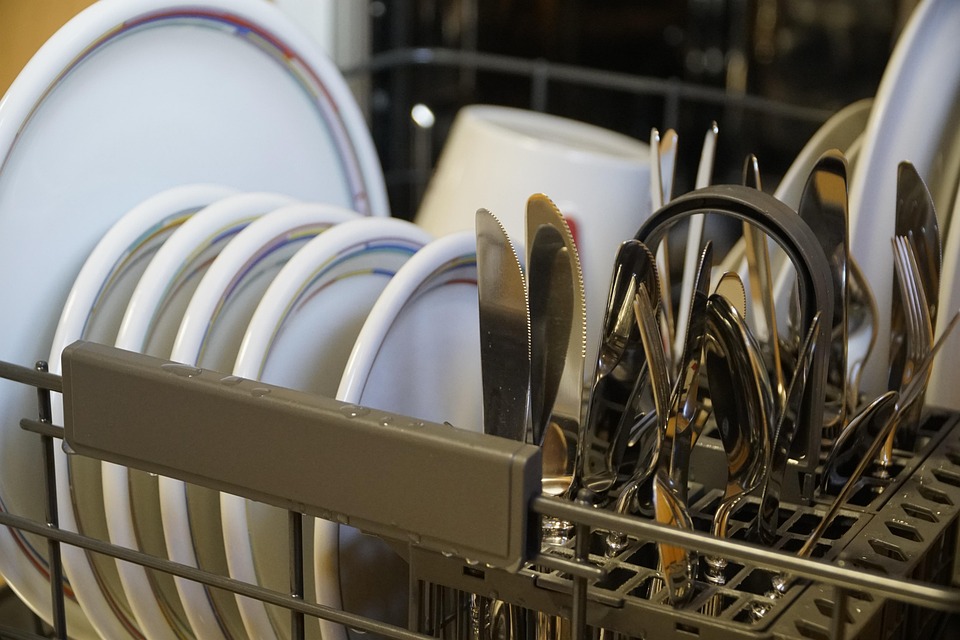
Dishwashers have become an indispensable part of modern kitchens, making the tedious task of washing dishes easier and more efficient. However, like any appliance, dishwashers can develop problems over time that affect their performance. Understanding the common issues and how to address them can save you time, money, and frustration. In this article, we’ll explore the most frequent dishwasher problems and offer practical solutions for fixing them.
Dishwasher Won’t Start
Possible Causes:
Power supply issues
Door latch not properly closed
Faulty control panel or timer
Blown fuse or tripped circuit breaker
How to Fix It:
First, check that the dishwasher is properly plugged in and that the outlet is working. Inspect the door latch to ensure it closes securely, as the dishwasher won’t start if the door is open or not fully latched. Reset any tripped circuit breakers or replace blown fuses. If these steps don’t work, the control panel or timer might be faulty and require professional repair.
Dishwasher Not Draining Properly
Possible Causes:
Clogged drain hose or garbage disposal
Blocked filter or drain pump
Faulty drain pump
How to Fix It:
Disconnect the dishwasher and inspect the drain hose for clogs or kinks. If your dishwasher drains into a garbage disposal, make sure it’s clear and running properly. Remove and clean the dishwasher filter regularly to prevent food debris buildup. If the dishwasher still doesn’t drain, the drain pump may need to be checked or replaced.
Dishes Not Getting Clean
Possible Causes:
Blocked spray arms
Using the wrong detergent or too little detergent
Overloading the dishwasher
Faulty water inlet valve
How to Fix It:
Remove and clean the spray arms to ensure water flows freely through the nozzles. Use a dishwasher detergent recommended by the manufacturer and the correct amount. Avoid overloading the dishwasher, as this prevents water and detergent from reaching all dishes. If dishes remain dirty, check if the water inlet valve is functioning correctly.
Dishwasher Leaking Water
Possible Causes:
Damaged door gasket or seal
Loose or cracked hoses
Overfilled detergent dispenser
Faulty float switch
How to Fix It:
Inspect the door gasket for cracks, tears, or debris that may prevent a tight seal. Tighten or replace any loose or damaged hoses connected to the dishwasher. Avoid using excessive detergent which can cause over-sudsing and leaks. If water leaks persist, the float switch might be malfunctioning and should be tested or replaced.
Dishwasher Making Loud Noises
Possible Causes:
Debris caught in the spray arms or pump
Faulty motor or pump bearings
Loose internal components
How to Fix It:
Check the spray arms and pump area for any stuck debris such as broken glass, bones, or food particles. If the noise continues, worn motor or pump bearings may be the cause, requiring professional repair. Also, inspect the dishwasher for any loose screws or parts that might be rattling.
Dishwasher Not Filling with Water
Possible Causes:
Blocked or faulty water inlet valve
Clogged water supply line
Faulty float switch
How to Fix It:
Turn off the water supply and check the water inlet valve for blockages or damage. Clear any debris from the water supply line. The float switch prevents overfilling by detecting water levels; if it’s stuck or defective, the dishwasher may not fill properly.
Preventive Maintenance Tips
Clean the filter regularly: A clogged filter reduces water flow and cleaning efficiency.
Run a cleaning cycle monthly: Use dishwasher cleaners or white vinegar to remove grease and lime buildup.
Check spray arms: Remove and clean spray arms periodically to prevent clogging.
Inspect door seals: Clean and check for wear to avoid leaks.
Avoid overloading: Proper loading ensures better cleaning and less strain on the machine.
When to Call a Professional
While many dishwasher problems can be fixed with basic tools and patience, some issues—like electrical faults, motor problems, or control board failures—require professional expertise. If you’re unsure or the problem persists after troubleshooting, it’s best to contact a qualified technician to avoid further damage.
Conclusion
Dishwashers simplify kitchen chores, but like any appliance, they need care and occasional repairs. By recognizing common problems early and knowing how to fix or prevent them, you can extend the life of your dishwasher and keep your dishes sparkling clean. Regular maintenance and prompt repairs are key to hassle-free operation.
